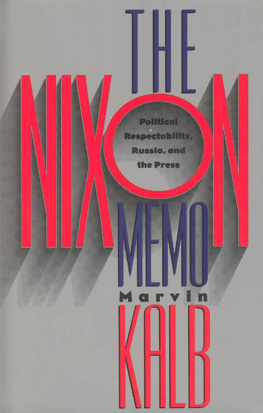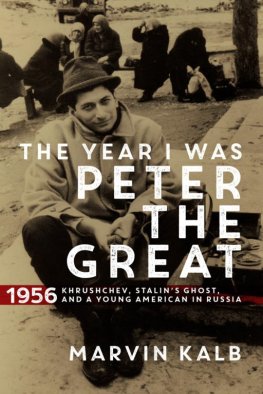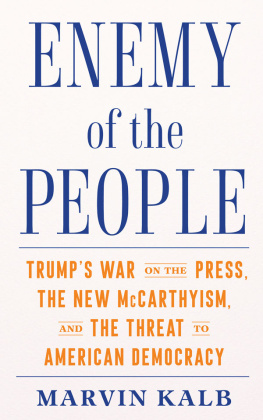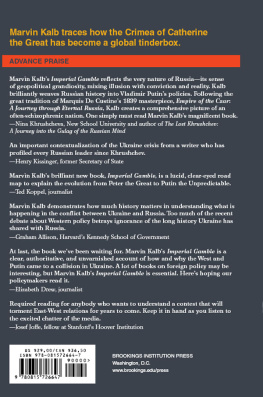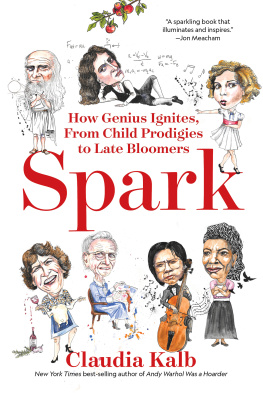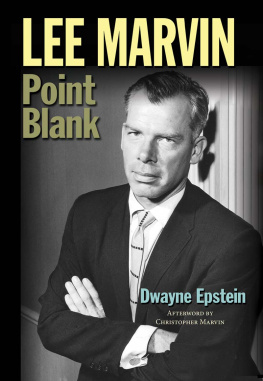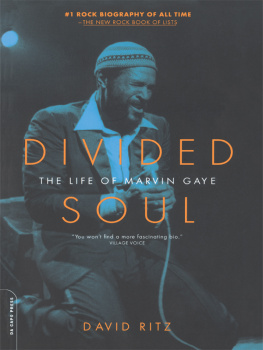Marvin Kalb, the Edward R. Murrow Professor of Press and Public Policy, is director of the Joan Shorenstein Barone Center on the Press, Politics and Public Policy at Harvards Kennedy School of Government. Before joining Harvard in 1987, he was one of televisions premier journalists, the chief diplomatic correspondent for CBS and then NBC. He has authored or co-authored eight other books.
The University of Chicago Press, Chicago 60637
The University of Chicago Press, Ltd., London
1994 by The University of Chicago
All rights reserved. Published 1994
Printed in the United States of America
03 02 01 00 99 98 97 96 95 94 1 2 3 4 5
ISBN: 0-226-42299-2 (cloth)
ISBN: 978-0-226-22161-8 (ebook)
Library of Congress Cataloging-in Publication Data
Kalb, Marvin L.
The Nixon memo : Political respectability, Russia, and the press / Marvin Kalb.
p. cm.
Includes bibliographical references (p.) and index.
1. Nixon, Richard M. (Richard Milhous), 19131994Views on Russia. 2. Press and politicsUnited States. 3. United StatesForeign relationsRussia. 4. RussiaForeign relationsUnited States. 5. PresidentsUnited StatesElection1992. I. Title.
E856.K345 1994
973.924092dc20
9427206
CIP

The paper used in this publication meets the minimum requirements of the American National Standard for Information SciencesPermanence of Paper for Printed Library Materials, ANSI Z39.48-1984.
THE NIXON MEMO
Political Respectability, Russia, and the Press
MARVIN KALB
The University of Chicago Press
Chicago & London
In memory of ROSE BELL GREEN who taught me to revere prose and to be skeptical of politicians
CONTENTS
ACKNOWLEDGMENTS
First, I wish to express my thanks to all of my colleagues at Harvards Kennedy School of Government for their encouragement. For the past seven years, the Joan Shorenstein Barone Center on the Press, Politics and Public Policy, which I have had the pleasure of directing, has been an exciting place for research and writing in the emerging field of press/politics.
Nancy Palmer, the assistant director of the Center, helped in a thousand different ways, anticipating and solving problems, controlling the flow of papers and students, and serving on many occasions as a sounding board for ideas. Frederick Schauer, the Frank Stanton Professor of the First Amendment, read the manuscript with his usual diligence and offered invaluable suggestions, big and small. I extend my gratitude, too, to Michele Johnson for her mastery of the new computer age, her dedication as a researcher, and her cooperative spirit; to Russell Stevens for his research assistance in the early stage of the books preparation; and to Susan Burns for her assistance in the final stage.
I have worked with three deans of the Kennedy School. Graham Allison, Robert Putnam, and Albert Carnesale have helped to create an atmosphere of academic excellence and excitement about public policy that has encouraged members of the faculty to pursue new paths of discovery and, while double-checking old assumptions, to explore new ones, with a view toward understanding and then trying to solve the problems of modern-day governance. They, too, have my thanks.
I am also grateful to dozens of journalists and government officials, past and present, who talked to me on the record or on background. Dimitri Simes of the Carnegie Endowment for International Peace and William Safire of the New York Times were especially helpful.
My friend Morton Janklow was patient and helpful. His many contributions to meand to so many other writersshould themselves be the stuff of books. He is a pioneer in the field.
After consultation with two of my colleagues here, Pippa Norris and Marion Just, I sent the manuscript to John Tryneski, senior editor at the University of Chicago Press. Tryneski responded with enthusiasm. Consistent with a university press tradition, Tryneski sent the manuscript to a number of outside readers, who wrote long, gracious, thoughtful critiques. Though to this day I do not know their identities, I valued their contributions and incorporated many of their suggestions into the manuscript. Thank you, whoever you are. I valued, too, the professional assistance of Rina Ranalli, Jennie Lightner, and other members of the staff at the University of Chicago Press.
I also wish to express my gratitude to William P. Green, Bernard Kalb, and Harry Schwartz for their editorial suggestions.
Finally, my wife, Madeleine Green Kalb, a writer and scholar, took time from her own busy schedule to edit The Nixon Memo with her characteristic dedication to style, clarity, and accuracy. She has provided encouragement and support throughout the project. She is a wonder, and as always I am in her debt.
The fault is mine, and mine alone, for any misdiagnosis or misplaced comma.
Cambridge, Massachusetts
June 1994
CHAPTER 1
THE IDEA
On March 10, 1992, Super Tuesday in the presidential primary calendar, a most extraordinary story appeared on the front page of the New York Times. The headline caught my attention: Nixon Scoffs at Level of Support for Russian Democracy by Bush. The lead of the story, written by Thomas Friedman, then the papers diplomatic correspondent, was equally dramatic. Former President Richard M. Nixon has sharply criticized President Bush and Secretary of State James A. Baker 3d for what he calls the Administrations pathetic support of the democratic revolution in Russia. He says one of the historic opportunities of this century is being missed. According to Friedman, these views were contained in a memo that Nixon wrote and circulated to a limited number of officials and journalists. There was no doubt Friedman had seen the memo.
The Times quoted the Nixon memo as saying: While the candidates have addressed scores of significant issues in the presidential campaign, the most important issue since the end of World War IIthe fate of the political and economic reforms in Russiahas been virtually ignored. Nixon dismissed Western efforts to help Russia as penny ante and warned that if Boris Yeltsin and the emerging democracy in Russia collapsed, we can kiss the peace dividend good-bye.
Then, reported the Times, Nixon laid a challenge before the White House and a grim political forecast before the nation. The mark of great political leadership is not simply to support what is popular, he wrote, but to make what is unpopular popular if that serves Americas national interest. In addition, what seems politically profitable in the short term may prove costly in the long term. The hot button issue in the 1950s was, Who lost China? If Yeltsin goes down, the question of Who lost Russia? will be an infinitely more devastating issue in the 1990s.
Why would Nixon raise such an inflammatory question at this time? Why would he attack Bush? Why on an issue of foreign policy, which was reputedly Bushs strong suit? Why during a particularly vulnerable time in Bushs reelection campaign?
These were instantly intriguing questions for anyone interested in presidential politics. I was at the time looking for a theme for a keynote speech that I was to deliver at the fifth anniversary celebration of the Joan Shorenstein Barone Center on the Press, Politics and Public Policy at Harvards Kennedy School of Government. Nixon, as president, had done much to complicate my life. In the early 1970s, when I was chief diplomatic correspondent for CBS News in Washington, he wiretapped my home phone and put me on his enemies list. (For more details, see .) But now, as a controversial former president still intent on influencing his countrys foreign policy, he unwittingly came to my assistance. The moment I saw his criticism of President Bush in the
 The paper used in this publication meets the minimum requirements of the American National Standard for Information SciencesPermanence of Paper for Printed Library Materials, ANSI Z39.48-1984.
The paper used in this publication meets the minimum requirements of the American National Standard for Information SciencesPermanence of Paper for Printed Library Materials, ANSI Z39.48-1984.
